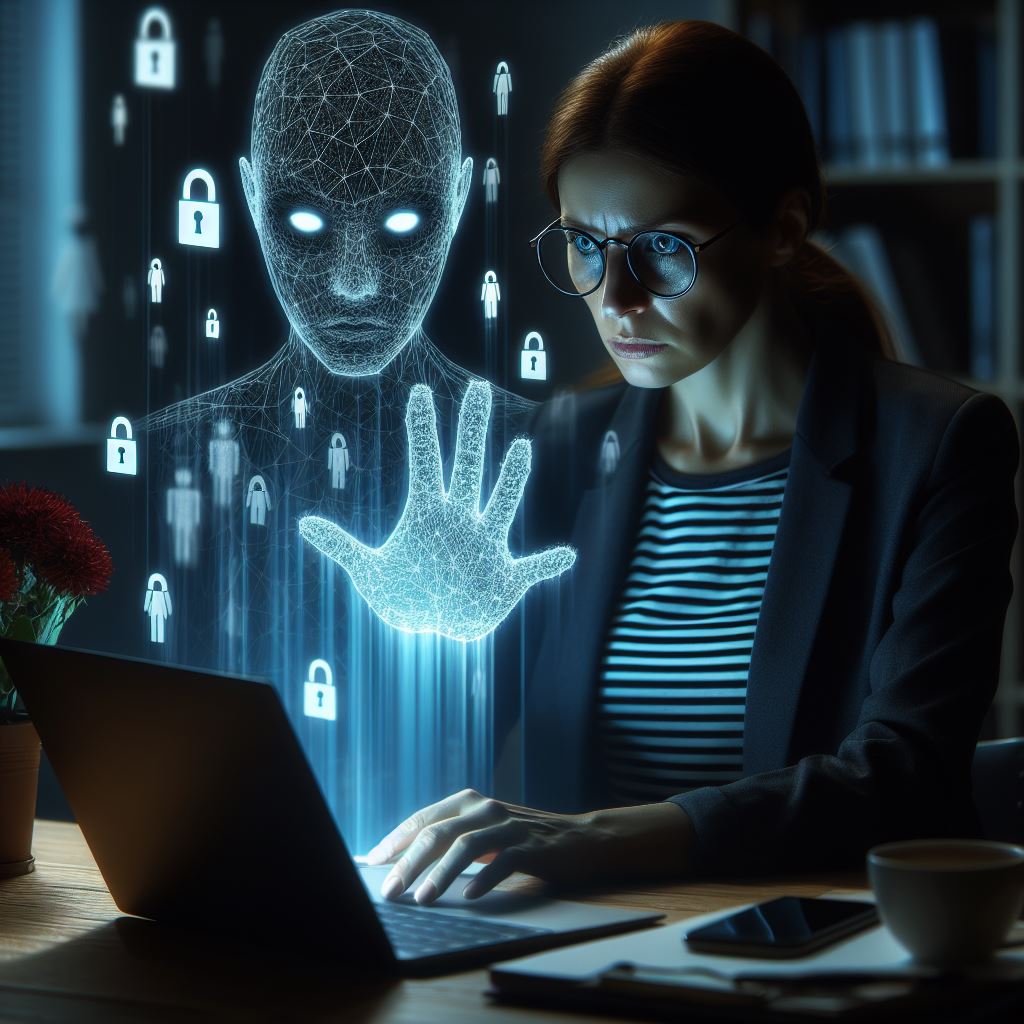Cybersecurity Expert Warns Women Of The Biggest Cyber Threats And Gives Security Tips

For this year’s Women’s Day, Surfshark’s Cybersecurity Lead Aleksandr Valentij reveals the biggest cyber threats women face, as well as tips on how to stay safe. Although both men and women are susceptible to the threats, Valentij’s extensive experience in cybersecurity has shown that cyber-stalking, identity theft, doxing and sextortion are threats that women should be especially vigilant about.
“Unfortunately, women are frequently targeted by criminals, both online and offline. And as technology advances, online threats only become more severe — high-definition photos can lead to stalking, and scam calls can lead to deepfaked voice recordings. The first line of defense against these threats is awareness. Empowering women with knowledge and tools for digital self-defense is crucial in our fight against tech-enabled crime.”, says Aleksandr Valentij, Cybersecurity Lead at Surfshark.
Valentij reveals the following crimes that women should be vigilant about:
Cyber-stalking, which may lead to stalking in real life
Even a seemingly innocent photo posted online can help stalkers track down their victims. In 2019, a Japanese singer was tracked down by a stalker through a train station’s reflection of her eye.
To stay safe, keep your social media profiles private and avoid posting high-definition photos that may reveal your location. Stalkers might also be able to extract your location through a photo’s metadata. Although platforms like Facebook and Instagram remove geolocation from a photo’s metadata, other platforms do not. Before posting, make sure to remove the metadata from a photo.
Identity theft
Be careful when sharing any photos, videos or audio recordings online — in the age of deepfakes and AI, identity theft is extremely dangerous and can be difficult to spot. Cybercriminals may be able to extract your voice through a phone call and then use it to create deepfaked audio recordings. Combined with a deepfaked video, criminals may be able to craft compelling scams requesting money from your loved ones, leading to potentially devastating monetary losses. Also, deep fakes can be used for harassment by creating derogatory multimedia content portraying you.
To prevent this from happening, avoid posting videos and audio recordings online. And if you receive a suspicious phone call, it’s best not to speak — a hacker may be on the other end waiting to steal a recording of your voice. Nowadays, not all scam calls aim to steal your money on the spot — they might aim to collect your voice sample for follow-up cyber attacks.
Doxing
Whenever your data is leaked online, hackers might resort to doxing — the act of publicly revealing personally identifiable information about an individual, i.e., deanonymizing. Threat actors might look for additional information about you to publicly reveal based on the data they already have (e.g., name, phone number, email, picture). The more data the hacker is able to extract, the higher the threat. The abusers of your revealed information may then use your information to create fake social media profiles or resort to deepfaked videos if enough information is obtained.
To protect yourself, be careful when sharing your information online. When signing up for new websites or newsletters, if possible, don’t reveal your real name, physical address, phone number or email. Once again, be careful when sharing your photos or voice online.
Extortion/sextortion
Most people have sensitive personal information on their devices — although not all as severe as to lead to sextortion, you probably have more than one photo on your device that you wouldn’t want your parents or boss to see.
To stay safe from extortion, don’t share compromising information with anyone, especially strangers online. Even sharing this information with loved ones may result in a leak. To keep the data on your phone and computer safe, keep a strong password on your device in case it’s stolen — if you use biometrics to unlock your hardware, set a password (PIN) of at least 12 characters — you won’t need to enter it often anyway, and your device will be extremely difficult to hack.
About Aleksandr Valentij:

Aleksandr has worked in the private sector and law enforcement’s Cyber CSI Unit for almost 20 years. He has extensive cybersecurity knowledge and has lectured at various global organizations such as EUROPOL, CEPOL, and other law enforcement authorities in multiple countries. As a certified IACIS CFCE expert, Aleksandr has a wealth of experience in computer forensics, offensive social engineering penetration testing, OSINT, defensive systems, and cybersecurity.

Surfshark is a cybersecurity company focused on developing humanized privacy and security solutions. The Surfshark One suite includes one of the very few VPNs audited by independent security experts, an officially certified antivirus, a private search tool, and a data leak alert system. Surfshark is recognized as the Independent’s Editor’s Choice for Best Value VPN 2023. For a closer look at Surfshark in 2023, visit our annual wrap-up. For more research projects, visit our research hub at: surfshark.com/research